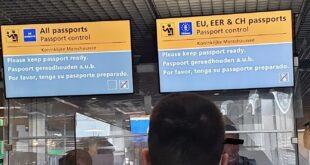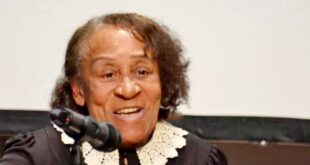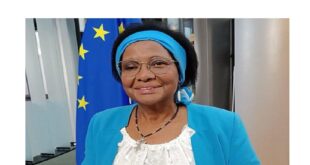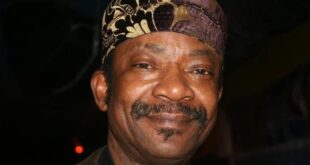While speaking at the opening of the People of African Descent (PAD) Week Germany on 28 November in the Bundestag, Goran Buldioski, co-director of Open Society Initiative for Europe, called for more data on the experience of Black people, including on racism and discrimination. That is precisely the objective of a unique project, presented at one of the workshops on the third day of the Week, which held on 28-30 November, seeking to reveal the nature and extent of racism against people of African descent in greater details.
Racism is experienced in different forms and places. Black people are often subjected to police identity control more than other groups in Germany. Also, they experience discrimination in public offices, at the workplace, while accessing healthcare, looking for apartment, in schools, in the justice system, in their neighbourhoods etc.
Finding out how and to what extent discrimination, which could be as a result of ethnicity, religion, age, gender or social-economic situation or a combination of these characteristics, is experienced in the different areas of life is important for those affected to demand for change and for policy makers to be able to intervene.
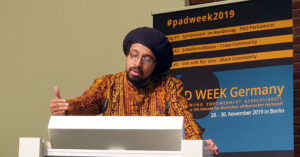
Joshua Kweisi Aikins, human rights activist and political scientist, explained that official statistics are grossly inadequate to understand the nature, extent and victims of racism and discrimination in Europe.
A situation where the term ‘people with migration background’, which groups people of African descent with Europeans, is often used to study issues of discrimination and inclusion is obviously defective. This is because the experiences of the ethnic groups within the category differ immensely. A Russian or Serbian will definitely experience racism and discrimination quite differently from a Ghanaian, for example.
“Anti-Black racism is specific and unique,” Aikins said. “It’s important that no forms of racism or groups of victims are hidden from official statistics,” he added.
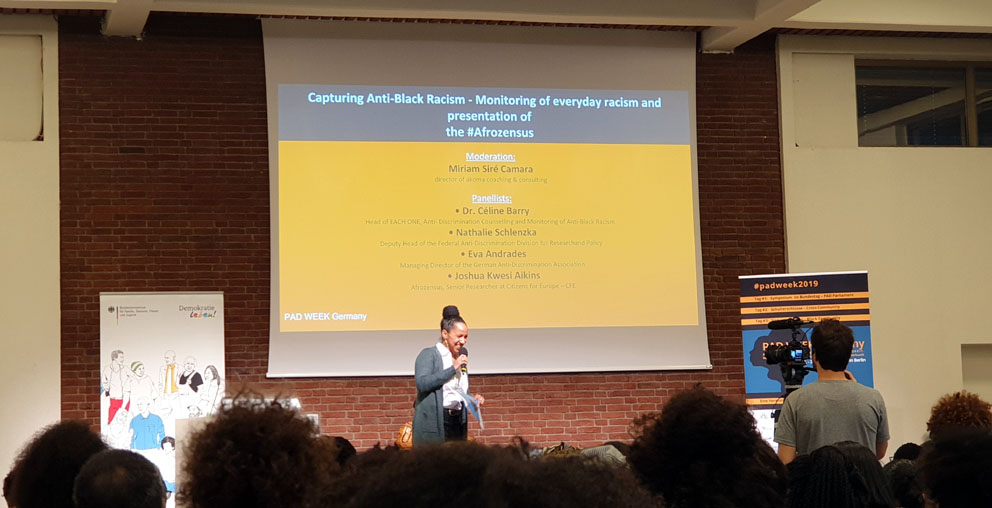
To correct the situation, Each One Teach One (EOTO) e.V., a community-based education and empowerment project and organisers of the PAD Week Germany, has initiated a project called Afrozensus (Afro Census), which seeks through data collection and analysis to provide a much clearer picture of racism and discrimination as they affect Black people in Germany.
The online survey will ask participants – people of African descent living in Germany irrespective of their national origin, about their experiences in daily life.
A panel, moderated by Miriam Siré Camara, director of akoma coaching and consulting, discussed “Capturing Anti-Black Racism – Monitoring of everyday racism and presentation of the #Afrozensus” during the PAD Week.
The discussants – Aikins, Dr Céline Barry of EOTO, Nathalie Schlenzka, head of research and policy at the Federal Anti-Discrimination Agency, and Eva Andrades, executive director of the German Anti-Discrimination Association, identified gaps in research and explored new, more effective ways of monitoring anti-Black racism.
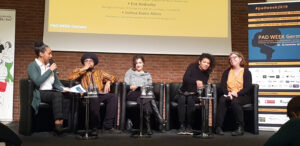
To advocate for social change requires data as evidence, Aikins, director of Afro Census, said at the workshop. “Advocacy needs data, figures, evidence,” he emphasised. To prove that a problem exists, you have to show what people are affected, how many are affected, how they are affected – giving a full picture of the situation which makes it easy to find answers, he explained. “We have to find out where interventions are necessary.”
The panellists all agreed on the importance of statistics in making racism and discrimination more visible. It was also agreed that many victims don’t report their experiences and/or don’t know their rights and very few seek redress.
The panellists said the issue of racism is very important because it affects the quality of life of the victims. “It can even kill,” commented one of the speakers.
READ ALSO Black People demand Equal Rights in Germany at historic congress
Statistics are especially needed to reveal the effects of structurally-anchored discrimination such as racial profiling by the police, mobbing by neighbours and disadvantages in the labour market.
According to a study published in March 2018, people of sub-Saharan African origin and Sinti and Roma were the most discriminated groups in Europe. While 24% of the respondents in Europe reported to have experienced racism in the preceding 12 months, in Germany the figure was 33%, revealing that Black people living in the country experienced racism more than their counterparts in other parts of Europe.
Afro Census will be launched early next year. The African Courier will keep you posted!
Femi Awoniyi
READ ALSO Congress pushes for more recognition of Black people in Germany
 THE AFRICAN COURIER. Reporting Africa and its Diaspora! The African Courier is an international magazine published in Germany to report on Africa and the Diaspora African experience. The first issue of the bimonthly magazine appeared on the newsstands on 15 February 1998. The African Courier is a communication forum for European-African political, economic and cultural exchanges, and a voice for Africa in Europe.
THE AFRICAN COURIER. Reporting Africa and its Diaspora! The African Courier is an international magazine published in Germany to report on Africa and the Diaspora African experience. The first issue of the bimonthly magazine appeared on the newsstands on 15 February 1998. The African Courier is a communication forum for European-African political, economic and cultural exchanges, and a voice for Africa in Europe.










